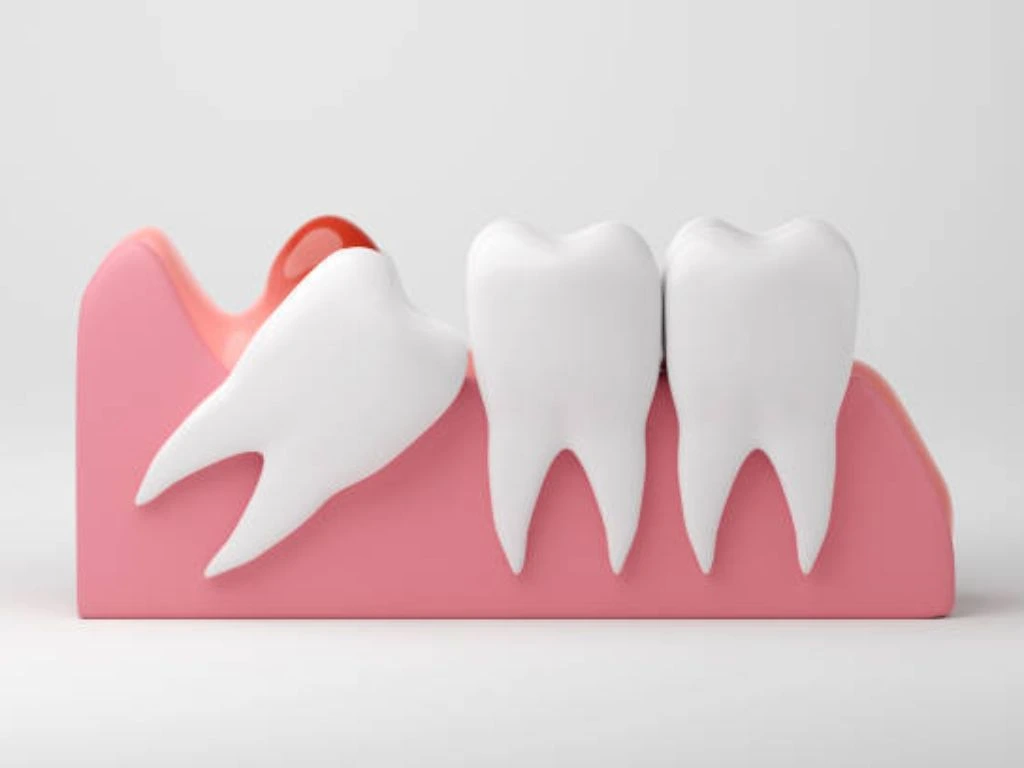Wisdom teeth also called as ‘third molars, usually emerge in late adolescence of early adult age. While some people have no issues with it. But others may experience measure problems that guarantees the extraction. In this article, we mention the signs you need to consider wisdom tooth extraction procedure, recovery and the benefits of wisdom tooth removal.
Understanding Wisdom Teeth
Wisdom teeth typically comes between the ages of 17 to 25. They can serve as an additional set of molars but there isn’t enough space in the mouth to fit them. When there isn’t enough room, wisdom teeth can get stuck leading to pain and various dental issues.
Common Sign of wisdom tooth pain:
Pain at the back of the mouth: This are the signs that your wisdom tooth are coming in.
Swelling and tenderness: Swollen gums around the wisdom tooth can indicate that it’s the teeth is impacted.
Jaw stiffness: Difficulty in opening your mouth can suggest that your wisdom teeth are causing issues.
Headaches: Pain in your jaw can lead to headaches or earaches.
Bad breath or an unpleasant taste: This can occur if food particles are trapped around an around an impacted tooth.
Signs You Need to Consider Wisdom Tooth Extraction
Severe Pain: If you experience persistent pain in the back of your mouth, it may indicate that your wisdom teeth are impacted and require extraction.
Swelling and Inflammation: Red and swollen gums around your wisdom teeth can suggest infection or impaction signaling the need for removal.
Difficulty Opening Your Mouth: If you find it hard to open your mouth fully, it could be dure to impacted wisdom teeth.
Crowded Teeth: If your wisdom teeth are causing other teeth to shift then it is right to be done extraction to maintain a proper alignment
Recurring Infections: Frequent gum infections near the wisdom teeth can a sign that the arent erupting properly and need to be extracted.
Cysts or Tumors: In rare cases a cyst or tumor can form around an impacted wisdom tooth require to be extracted.
Changes in Bite: If you notice changes in how your teeth align when you bite down, it could be sign that your wisdom teeth are causing issues.

Reasons for Wisdom Tooth Extraction
Wisdom tooth extraction may be necessary for several reasons:
Impaction: When wisdom teeth do not get enough space to grow properly they become tapped in the jawbone or gums leads to pain and infection.
Infection Risk: Impacted wisdom teeth can cause bacteria to grow leading to infections that may affect your overall oral health.
Crowding: Removing wisdom teeth can help prevent crowding of other teeth, preserving your smile.
Cysts and Tumors: Wisdom teeth can lead to the formation of cysts or tumors, which may require surgical intervention.
Wisdom Tooth Extraction Recovery
Recovery from wisdom tooth extraction generally takes a few days. Here are some tips for a smooth recovery:
Rest: Take it easy for few days post extraction and avoid tough activities to promote healing.
Ice Packs: Apply ice packs to your cheeks to reduce swelling in the first 24 hours.
Soft Foods: Stick to soft and easy to consume the foods like yogurt, applesauce and smoothies for the first few days.
Hydration: Drink plenty of fluids but avoid using straws a sucking can dislodge the blood clot forming the extraction site.
Pain Management: Pain relievers or prescribed medications can help manage discomfort.
Benefits of Wisdom Tooth Removal
Removing wisdom teeth can have several benefits:
Prevention of Future Problems: Extracting wisdom teeth before they cause issues can save you from pain and complication later.
Improved Oral Health: Removing problematic wisdom teeth can reduce the risk of infection and damage of teeth.
Easier Cleaning: With wisdom teeth removed it can be easier to maintain good oral hygiene as there are fewer teeth to clean around.
Better Jaw Alignment: Removing wisdom teeth can help maintain proper alignment of your bite.
Wisdom Teeth Removal Cost
The wisdom teeth removal cost depend on several factors, including
Location: Prices may different based on where you live.
Complexity of the Extraction: Simple extractions may cost less than impacted wisdom tooth extractions that needs surgery.
Anesthesia Type: The type of anesthesia used can also affect the overall cost.
It’s important to discuss cost with the dentist and check if your dental insurance covers part of the procedure.
If you experience any signs of wisdom tooth problems, it’s crucial to consult with your dentist. They can analyse your situation and offer a personalized recommendations. Understanding the wisdom tooth extraction procedure and its benefits can help you make an informed decision about your oral health.
If you are seeking the best dentist for wisdom tooth extraction in Liverpool, Sydney, and want to have a comfortable and anxiety-free treatment, then we are here at this location to provide you the best dental services in Liverpool, especially for wisdom tooth extraction. Contact us to book a consultation with our dentist to discuss the dental issues you are facing.
Don’t let dental concerns hold you back explore our site to discover how we can help you achieve a healthier, happier smile!
FAQs
Common signs include pain at the back of your mouth, swelling in your gums, difficulty opening your mouth, and changes in how your teeth align when you bite down. If you have any of these symptoms, it’s best to see a dentist.
Recovery usually takes a few days. During this time, you should rest, eat soft foods, and apply ice packs to reduce swelling. Most people feel better within 3 to 5 days, but it may take a week for full healing.
If left untreated, impacted wisdom teeth can lead to infections, pain, crowding of other teeth, and even cysts or tumors. It’s important to get them checked early to avoid these problems.
Removing wisdom teeth early can prevent pain, infections, and other dental problems later. It also helps keep your other teeth in proper alignment and makes it easier to maintain good oral hygiene.
The cost of wisdom tooth extraction in Sydney depends on the complexity of the procedure. Simple extractions may cost less, while impacted teeth that need surgery can be more expensive. It’s best to check with your dentist for a detailed estimate and see if your insurance covers part of the cost.
